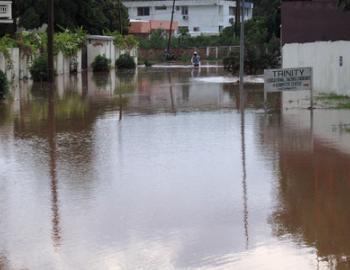What’s behind the record rainfall in Chennai, India?
What’s behind the record rainfall in Chennai, India?
On 1 December 2015, it rained 494 mm (19.45 inches) within 24 hours in Chennai. The rainfall brought nearly full reservoirs to capacity, prompting local authorities to release water into the rivers, which subsequently overflowed and flooded low-lying areas. It also left more than three million people without basic services, forced tens of thousands from their homes, collapsed roads and bridges, halted air and train travel in and out of the city, and forced the local paper to stop publication for the first time in 137 years. Chennai was declared a disaster zone after the record rainfall led to catastrophic flooding.
A scientific team, as part of the Raising Risk Awareness initiative, assessed whether and to what extent the record rainfall that affected Chennai could, in part, be linked to climate change due to the build-up of greenhouse gases caused by the burning of fossil fuels
They conducted independent assessments using multiple peer-reviewed approaches of extreme event attribution methodologies, including statistical analyses of the historical precipitation record, the trend in global climate models, and the results of thousands of simulations of possible weather with a regional climate model.
No measurable effect of human-caused emissions was detected in the extreme one-day rainfall in Chennai on 1 December, 2015. There are two reasons for non-detectable effects of human-induced climate change:
- there is no effect with current levels of emissions or
- the effect from greenhouse gases is masked by other pollutants, such as aerosols
Download this presentation to find out more about the record rainfall in Chennai, climate science attribution and the Raising Risk Awareness initiative.



